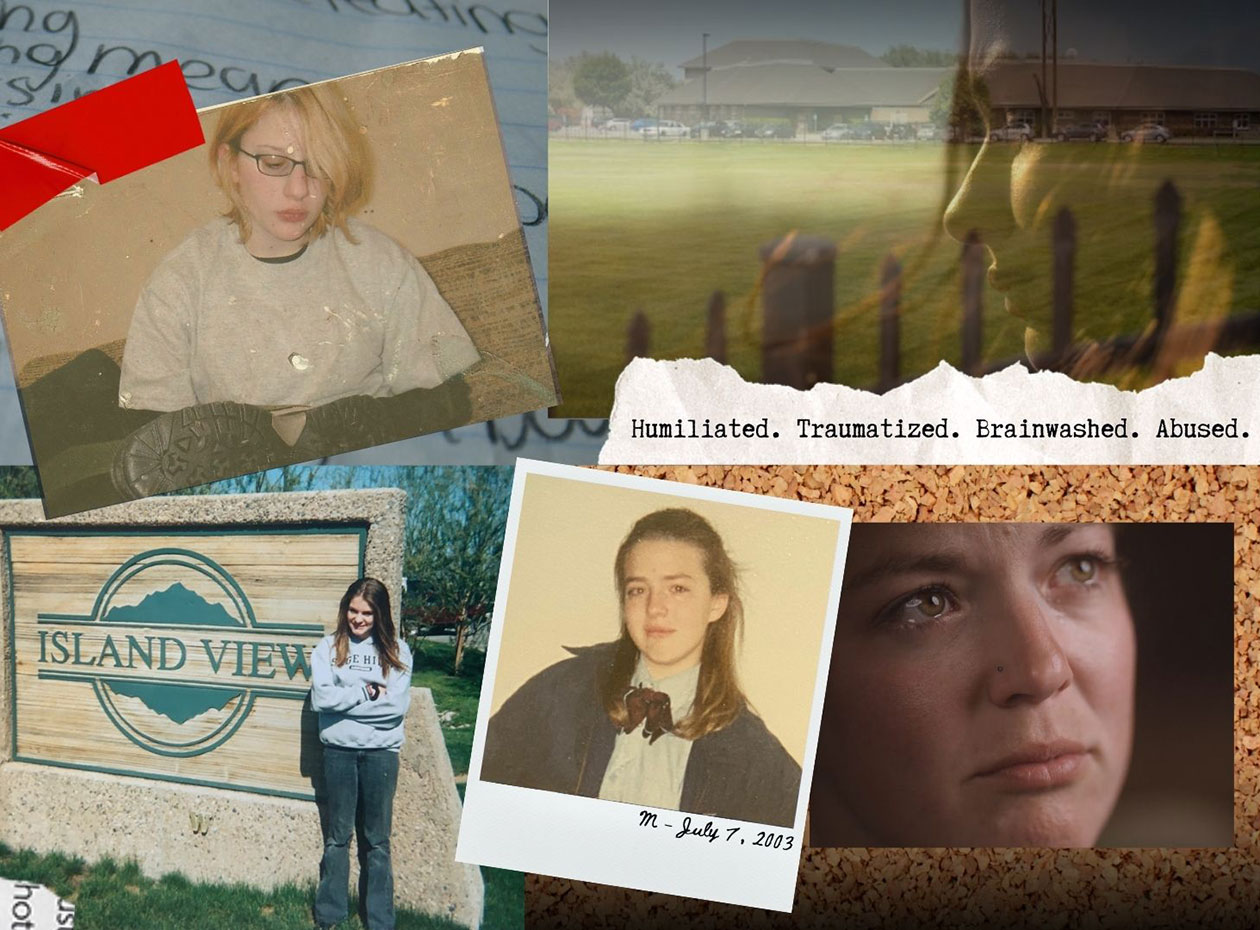ABOUT THE PROJECT
LOGLINE
20 years after leaving a troubled teen facility, three women reunite to confront the traumatizing experience and work through the lasting impact of the destructive institution. Together, they vow to face memories that haunt them to this day, break dangerous cycles of behavior, and put the work in towards becoming the supportive adults they so desperately needed as children.
SYNOPSIS
Bryn, Mary, and Jessica met 20 years ago under unusual circumstances. Their parents, unsure what to do with their seemingly out-of-control teenage daughters, signed over parental rights to Island View Academy, and thus, the girls and their families had become ensnared in the Troubled Teen Industry—a collection of institutions claiming they can cure teens of drug addiction, promiscuity, self-harm, and general defiance.
In reality, residents experienced institutionalized child abuse; they were locked indoors, shamed, overmedicated, brainwashed, psychologically and physically abused, all while Island View raked in hundreds of thousands of dollars.
Kids exited these programs worse than before, stripped of their sense of self—many left with PTSD, anxiety disorders, and abandonment issues. Many died before reaching age 30. One died behind Island View’s locked doors.
In TROUBLE: SURVIVING THE TROUBLED TEEN INDUSTRY, our protagonists find catharsis by advocating for their younger selves and other kids still suffering within the TTI. We see how they’ve survived thus far as they work through pivotal points in their adulthood while still carrying the trauma of their childhood.
Mary works to do better by her daughter, breaking the chain of parental abuse and neglect passed down to her. Jessica endeavors to find closure with her dying mother. Realizing her Island View experience has negatively affected every relationship she’s had, Bryn attempts to fix it at the source by confronting her family for the first time.
Captivating interviews with TTI survivors and psychological experts juxtapose illuminating archival elements and a showcase of healing through artistic expression. This film asks: are troubled kids born that way, or are they products of their environment? Can a person build themself back up after being systematically broken down? And if you feel your kid is out of control, are there healthier alternatives to the Troubled Teen Industry?
PROJECT TYPE Documentary Feature
DIRECTOR Bryn Woznicki
PRODUCER Katie Hacala, Katie Hall
CO-PRODUCER Drew Paslay
🎬 Support independent film through The Film Collaborative
The Film Collaborative (TFC) is a 501(c)(3) nonprofit supporting independent filmmakers.
Federal Tax ID: 32-0295081
Your gift is tax-deductible as allowed by law.
💳 Ways to Give
- Online:
Click the Donate button above. You can:- Use your PayPal account, or
- Check out as a guest with your debit/credit card — no PayPal account required.
- ACH or Wire
Email us for instructions.
- Zelle
Email us for instructions.
- Check
Checks are accepted, but for time and security reasons, electronic donations are preferred when possible.
Check donation instructions are here.
- Stock
Donating appreciated stock can increase your impact by up to 20%.
Learn more about advantages of stock donations here.
Email us for instructions.
- Donor-Advised Funds (DAF):
Instructions for donating from a DAF are here.
📈 Maximize Your Gift
- Many employers offer matching gifts, doubling or even tripling your donation. Some match contributions up to a year after they’re made.
- When donating via PayPal, consider covering the small processing fee to make the most of your gift toward the project.
📄 Tax Receipts
- In compliance with IRS rules, tax receipts are issued for the amount TFC receives after payment processor fees are deducted.
- PDF tax receipts are emailed within 30 days of your online donation.
- The “receipt” immediately sent by PayPal is only a payment confirmation — it is not your tax receipt.
Thank you for helping bring powerful independent films to life.
ID: 700
